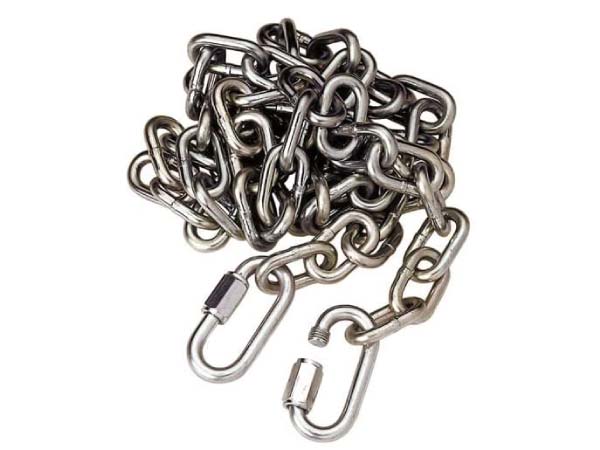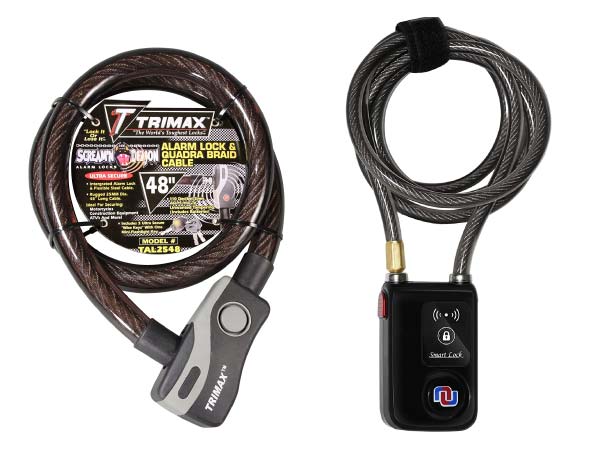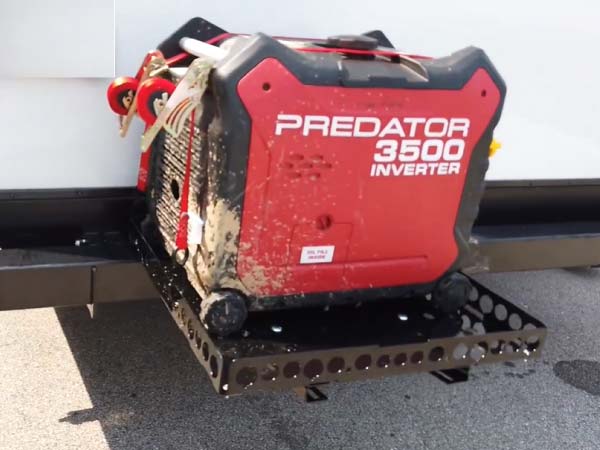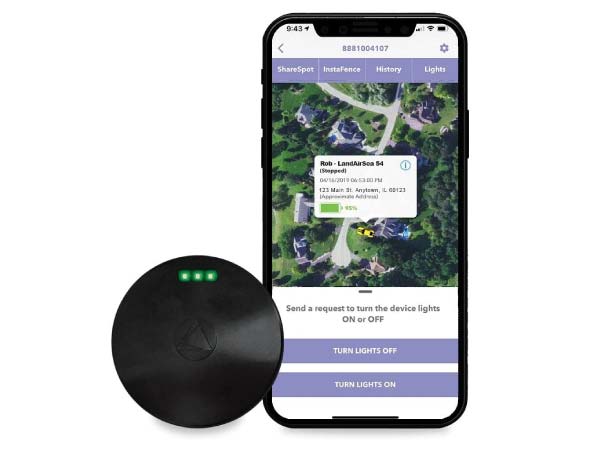How to Secure a Generator While Camping? – [Top 10 Tips]
Ever wondered how to secure a generator while camping? Portable generators have been used for camping and boondocking for a long time because they make our camping trip super easy by running and charging our appliances.
Most people including me prefer a portable dual-fuel inverter generator for outdoor activities because they generate pure sine wave power with the minimum harmonic distortion which is safe for sensitive appliances like cellphones, DSLR cameras, and laptops.
But, the biggest problem with portable camping generators is that they are most commonly stolen from the campsite especially when you are not using them.
I am also a victim of generator theft. I had my Champion 2000 running for 6 hours straight before I decided to give it a break. In the morning, my generator was gone.
It may seem strange to you, but generator theft is more common than you know. That is why, it is very important to secure a generator while camping, and fortunately, it is easier than you think.
How to Secure a Generator on a Campsite?
You can secure your generator while camping or boondocking by using strong chains, alarms, cameras, and cables, or placing it in a place where thieves have a tough time getting to it. You can also use a hitch or rack on the back of your RV, or truck to strongly mount the generator.
Let me explain each safety precaution in detail.
- Protect the generator on a campsite using chains
- Protect the generator on a campsite using chains
- Cables Alarms
- Bolt Your Generator to a Bracket
- Mounting the Generator on the RV
- User of Cameras
- Get a Pet (Dog)
- Installing a tracker
- Location
- Well Lit Area
#1. Protect Generator on a Campsite Using Chains:

The most basic and important safety precaution for a generator on a campsite is locking it with a chain.
Purchase the thickest possible then secure the portable generator right next to the axle or tire of your RV, truck, or car. Then, use a padlock.
I would advise purchasing a cut-proof chain because a simple bolt cutter can easily snap a chain which ultimately leads to theft.
My RV has a built-in locker to hold the generator using chains.
#2. Use Cables:

Using cables is another way to keep the thieves away from your generator because they are more difficult to cut and they will give bolt cutters a hard time.
Thieves would have to bring battery-powered diamond cutting wheel tools to cut these cables.
However, thieves are often prepared for such obstacles no matter how hard you try to secure them with the cables.
If your area is prone to theft, use both chains and cables to make it more difficult to remove your generator.
#3. Cables Alarms:

Another great way to prevent theft is to use anti-cut alarm cables like TRIMAX. These are special kind of wires that comes with a screeching alarm that sounds if anyone tries to cut the lock or cable.
However, these will only work if you are close by or you have someone parked next to your RV.
I use TRIMAX alarm cable for my ECO FLOW DELTA PRO solar generator because it is very expensive. I would do anything to protect my precious appliances.
#4. Bolt Your Generator to a Bracket:
I have seen a ton of outdoorsmen bolting their generators to a bracket in their travel trailers, trucks, or RVs. It is one of the safest ways to secure a generator.
If you additionally use cables or cables, thieves will have to bust their asses to unbolt it and cut the chains and cables to steal the machine.
I normally use a Sunluway security bracket for my HONDA Eu2000i. It is so simple to install, you will just have to install some bolts over the handle of your generator.
#5. Mounting the Generator on the RV:

If you are an RV owner, then you should mount your generator on it using either the A-frame, the bumper, or the front hitch.
It will not only secure the generator while traveling, and save space in the room, but it will also protect it from thieves.
This type of security precaution is especially preferred for solo travelers. It is also beneficial if your generator is heavy and you hate to lug it around.
However, there are some issues as well like you will have to install a cover to protect it from direct sun rays and rain.
Another problem I see is that we usually use the generator 20 to 25 feet away from the camping area to avoid noise and CO poisoning. Keeping it that close to the RV will surely disturb you.
You are gonna have to install a CO sensor alarm to protect yourself from carbon monoxide poisoning which is a colorless, odorless, and deadly gas that can kill in an instant.
You will also have to either purchase a super silent generator like a HONDA Eu2200i or make a DIY soundproof box to make it quieter.
#6. Use of Cameras:
Security cameras with motion detectors send a live feed to the owner of all the activities happening in the campsite area.
This is a great option for boondockers who regularly camp in the same places. Thieves often notice patterns of camping and areas you frequently visit.
So if there is a designated area that you frequent, invest in security cameras for bulletproof generator safety.
#7. Get a Pet (Dog):

Dogs are not only great travel companions and our friends, but they also serve as guards to protect our houses and inform us of any suspicious activity.
I always take my Tommy (Dog) with me for solo camping or boondocking. I leave Tommy behind to guard the vehicles and the power station or generator when I go for a short walk.
He not only protects my processions, but I also feel safe during long winter nights in the woods.
By the way, Tommy is a German Shepherd.
#8. Installing a Tracker:

Suppose your generator got stolen from your campsite despite taking all the safety precautions. Now how would you retrieve it?
Tiny GPS tracker Tracki is the guy for you. It is super easy to install and it will show you the live position of your feed. Its magnet will stick to the metal surface of the generator like glue.
A GPS is an excellent choice for expensive units. Suppose you are on a long walk and an intruder shows up at your campsite and leaves the generator.
You just call the cops and sit back.
#9. Location:
If your generator is 30 to 40 feet away from the camping area and out of your site, you are inviting potential intruders even if you have taken safety precautions.
If you are away from the population then it is OK to run the generator away from the sleeping area, otherwise, keep it on your site to avoid potential theft.
#10. Well-Lit Area:
The area around the vehicle and generator should be well-lit to let the intruders know that you are there and awake. The glowing area also keeps the animals away from the camping area as well.
However, it can act as a double-edged sword as well. Suppose you are not running your generator at the moment, but the area surrounding the campsite is well-lit. Now you have attracted potential thieves by telling them your location.
It is entirely up to you whether you use lights or not. If I talk about myself, I do use LED lights during boondocking.
Final Thoughts
A generator is a huge part of dry camping. Nobody wants to wind up without power in the middle of nowhere.
I remember one time my generator was stolen from the campsite when I was taking a walk. Unfortunately, the batteries of my travel trailer were also dead at that time so I ended up with no power at all.
I didn’t even have a backup power station or another generator to charge the RV batteries. That was an ugly experience.
I would advise spending a few extra bucks on the generator’s safety by purchasing at least a chain and a lock if you can’t afford cables, cameras, or mounting brackets.

Josh is a highly skilled electrician with specialized expertise in the field of generators. With years of experience under his belt, he has established himself as an expert in all aspects of generators, ranging from installation and maintenance to troubleshooting and repairs. Josh’s in-depth knowledge of electrical systems and his commitment to staying updated with the latest industry advancements make him a reliable and sought-after professional.
